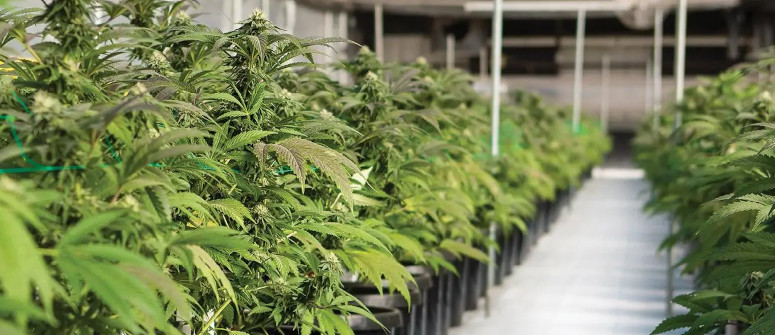F1 cannabis seeds under the microscope at Montréal research lab

Published
"F1 seeds" is the cannabis industry's newest buzzword, and for good reason. Now, new research headed by Canadian and Dutch companies aims to uncover how to harness the vast potential of F1 cannabis genetics, likely changing the way we grow weed forever.
Cannabis plants naturally grow from seeds. However, to ensure genetic stability, commercial cannabis growers traditionally opt to use clones. Soon, that might change: Canadian stone wool producer Grodan and Dutch cannabis seed company F1 SeedTech are leading new research into the viability of F1 cannabis seeds at the CRIC Labs (CRIC) in Montreal, which are poised to provide unprecedented stability and uniformity to the cannabis cultivation sector.
What are F1 cannabis seeds?
F1 seed breeding is nothing new—in fact, it's been heavily employed across the agricultural industry for decades, allowing farmers around the world to grow healthy, high-yielding crops every year. Some crops that have benefitted from an F1 makeover, for example, are corn and tomatoes. F1 corn varieties first hit the market in the 1930s and have since improved annual corn yields in the US alone by 700%. F1 tomato seeds have similarly improved yearly tomato yields by up to 300% since 1969. These benefits come from a natural phenomenon called hybrid vigour, or “heterosis”, which occurs when two genetically different plants are cross-bred, resulting in a significant increase in yield and plant strength.
What benefits do F1 hybrids offer cannabis growers?
In 2022, Grodan and F1 SeedTech conducted a joint trial on F1 seeds to determine their viability for cannabis cultivation. Their study found that F1 cannabis seeds could:
- Greatly increase yields: The research showed that F1 cannabis seeds can produce up to 6kg/m² of dry cannabis flower annually over 5.5 crop cycles.
- Improve potency: Flower samples consistently produced up to 29% THC.
- Provide a consistent crop and final product: The F1 seeds used in the study produced highly consistent plants and flowers.
The F1 revolution — Could F1 seeds forever change the way we grow weed?
Because of cannabis' high genetic diversity, growers have traditionally used mother plants to preserve plants with particular grow traits. While effective, keeping mother plants poses challenges for numerous reasons, including:
- Mother plants need to be kept from flowering: This means they need to be kept under 18 hours of light and properly fed, watered, and maintained all year round. This process is labour-intensive and expensive.
- Cloning isn't foolproof: Human error can affect the success of cloning cannabis.
Thanks to their stability, F1 cannabis seeds might eliminate the need for growers to keep mothers, allowing them to dedicate more space, time, and energy to growing productive flowering plants without sacrificing genetic stability.
Grodan and F1 SeedTech's new study began in August 2023 at CRIC—a renowned research and development facility in Montréal, Canada. This round of research will focus on quantifying how different lighting, irrigation, and climate management strategies affect F1 cannabis harvests. The studies will use F1 SeedTech's F1 seeds, as well as a new special growing medium produced by Grodan.
"Collaborating with the right partner can take research to new heights, and we at F1 SeedTech are excited to continue this journey with Grodan. After conducting multiple successful trials in Europe using Grodan's stone wool growing media and F1 hybrids of F1 SeedTech, we realised the importance of being closer to North American cannabis growers. Therefore, this facility will serve as a showcase for the Canadian market", said Maikel de Bresser, COO of F1 SeedTech.
"Grodan understands that production economics are top of mind for all producers", shared Frank Janssen, manager of Research & Project Management at Grodan. “We are confident that these new trials will not only support our previous findings but also reveal new ways to improve cultivation practices, ultimately enhancing our customers' bottom lines by increasing efficiency and profitability".
.jpg)


.jpg)